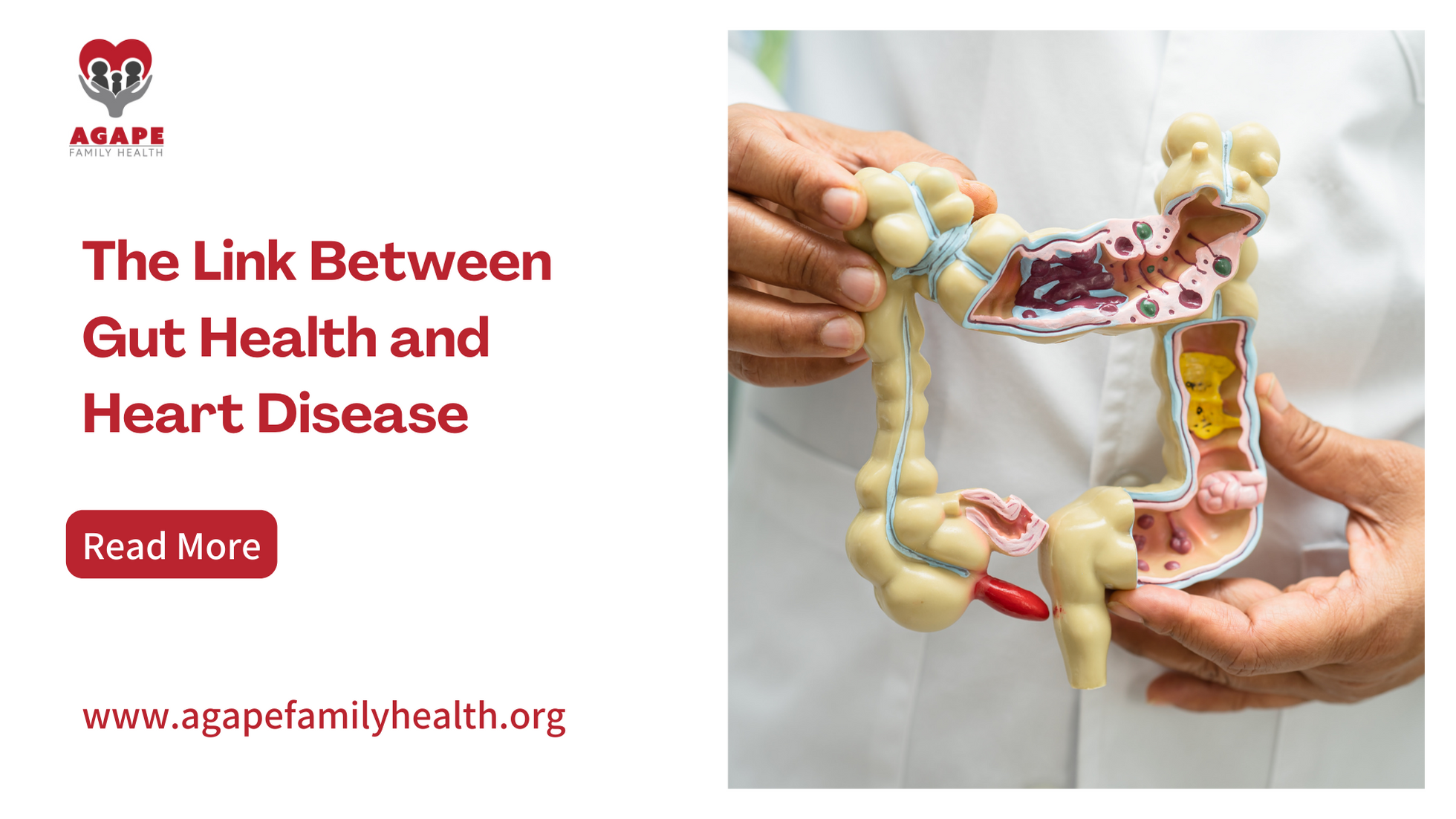Cardiovascular disease (CVD) remains a formidable opponent, claiming 17.3 million lives worldwide annually and representing a third of all deaths in the United States. This broad category encompasses a spectrum of conditions that impair the heart and blood vessels, with atherosclerosis, heart failure, and hypertension leading the charge.
Traditionally, the spotlight has been on smoking, obesity, and diabetes mellitus as the primary culprits behind these life-threatening conditions. Yet, the narrative is shifting, thanks to groundbreaking research that points to gut dysbiosis—a disruptive imbalance in the gut microbiome—as a pivotal factor in the development and progression of cardiovascular diseases. This emerging evidence unveils a complex interplay between the gut’s microbial inhabitants and heart health, suggesting that the path to a healthier heart might very well pass through the gut.
What is Gut Health?
Gut health refers to the optimal functioning and balance of the gastrointestinal (GI) tract, which is a complex system responsible for digesting food, absorbing nutrients, and expelling waste. It encompasses the health of various components of the GI system, including the stomach, intestines, and other organs involved in digestion and metabolism. A crucial aspect of gut health is the gut microbiome, the vast community of microorganisms, including bacteria, viruses, fungi, and other microbes, that reside in the digestive tract.
These microorganisms play a critical role in digestion, immune system function, protection against pathogens, and even the regulation of mood and mental health. A healthy gut microbiome is characterized by a diverse and balanced composition of these microbes, which can be influenced by factors such as diet, lifestyle, and antibiotic use.
Maintaining good gut health is essential for overall well-being and can prevent a variety of health issues, including gastrointestinal disorders like irritable bowel syndrome (IBS) and inflammatory bowel disease (IBD), as well as broader health concerns such as obesity, type 2 diabetes, and heart disease. Diet plays a pivotal role in gut health, with a diet rich in fiber, fruits, vegetables, and fermented foods promoting a healthy microbiome.
Conversely, a diet high in processed foods, sugar, and saturated fats can disrupt the microbial balance, leading to dysbiosis—a condition where harmful microbes outnumber beneficial ones, potentially leading to inflammation, increased permeability of the intestinal wall (“leaky gut”), and an increased risk of chronic diseases. Thus, gut health is not only about digestive well-being but is intricately linked to the body’s overall health and immune function.
The Connection of Gut Health and Heart Disease
The intricate relationship between the gut and heart health unveils a fascinating aspect of how our diet and the microbiota residing in our intestines play a pivotal role in cardiovascular well-being. The gut, home to trillions of microbes collectively known as the human microbiota, is a critical player in not just digestion but also in the production of nutrients and substances that have profound effects on our overall health.
According to Dr. Stanley Shaw, a cardiologist at Brigham and Women’s Hospital, there exists a complex interplay between our gut microbes and the body’s key systems, including the vascular, nervous, endocrine, and immune systems, all of which have direct links to cardiovascular health. This connection underscores the importance of gut health not only for digestion but as a significant influencer of heart health, mediated through the diverse activities of gut microbes.
Diet significantly affects the composition of the gut microbiota, and consequently, what we eat can have far-reaching implications for our heart health. One of the mechanisms through which the gut impacts cardiovascular health is through the production of metabolites like trimethylamine (TMA), which is generated when gut microbes break down choline—a nutrient abundant in red meat, fish, poultry, and eggs. TMA is then converted by the liver into trimethylamine N-oxide (TMAO), a compound closely associated with the development of artery-clogging plaque. Elevated levels of TMAO in the bloodstream have been linked with an increased risk of heart attack and stroke.
Research, including a study published in the September 2022 issue of Arteriosclerosis, Thrombosis, and Vascular Biology, highlights the correlation between red meat consumption and higher TMAO levels, suggesting that reducing red meat intake could mitigate the risk of heart disease by limiting the production of TMAO and other harmful metabolites like gamma-butyrobetaine and crotonobetaine, further illustrating the critical role of gut health in the prevention of cardiovascular diseases.
Source: Harvard Health
The Role of Gut Health in Heart Health
Diet emerges as a critical factor in shaping the gut microbiome and, by extension, influencing heart health. Foods high in fiber, such as fruits, vegetables, and whole grains, promote the growth of beneficial bacteria in the gut. These microbes, in turn, produce short-chain fatty acids (SCFAs) that have anti-inflammatory properties and may protect against heart disease. On the flip side, diets rich in red meat and other animal products can foster the growth of bacteria that produce harmful substances like TMAO.
The evidence suggests a symbiotic relationship between diet, gut health, and heart health. By adopting a diet that supports a healthy gut microbiome, individuals can potentially lower their risk of cardiovascular disease. This dietary approach aligns with the Mediterranean diet, which is renowned for its heart health benefits and includes plenty of plant-based foods, lean proteins, and healthy fats.
Maintaining Gut Health

Maintaining gut health is a topic of increasing interest among health professionals, as they delve deeper into the relationship between our microbiome and overall well-being, including heart health. While research continues to explore the potential of directly modifying the microbiome for better health outcomes, there are several steps you can take now to support your gut health:
- Be Prudent with Antibiotics: Antibiotics are powerful tools against infections but can also disrupt the beneficial bacteria in your gut. Use antibiotics only as prescribed by your healthcare provider, adhere to the dosing instructions meticulously, and avoid discontinuing the course prematurely or sharing your prescription with others.
- Prioritize Hand Hygiene: Regularly washing your hands with soap and water is a simple yet effective way to prevent the introduction of harmful pathogens into your system. In situations where soap and water are unavailable, opt for a hand sanitizer that contains at least 60% alcohol to keep your hands clean.
- Increase Fiber Intake: A diverse and nutrient-rich diet is essential for a healthy microbiome. Dietary fiber, particularly from plant sources, plays a vital role in nurturing beneficial gut bacteria. Many people don’t consume enough fiber; to increase your intake, include whole fruits like apples and pears with their skins, incorporate beans into your meals, and choose whole grains over processed options like white rice. These changes can significantly benefit your gut health.
- Consider Probiotics: Consuming foods rich in probiotics, such as yogurt, miso, and sauerkraut, can contribute to a healthier gut flora by adding more beneficial bacteria. Some studies suggest that these foods can help maintain a balanced gut microbiome. If you’re thinking about taking probiotic supplements, it’s wise to consult with your healthcare provider first to ensure they’re a suitable option for you.
Source: Hopkins Medicine
Future Directions and Clinical Implications
As research into the gut-heart axis progresses, the potential for new therapeutic strategies becomes apparent. Probiotics and prebiotics, which aim to modulate the gut microbiome, offer promising avenues for preventing and treating heart disease. Clinical trials and further studies are needed to fully understand the mechanisms at play and to develop targeted interventions.
The link between gut health and heart disease is a compelling reminder of the body’s interconnectedness. It underscores the importance of holistic approaches to health that consider the whole person rather than isolated systems. As our understanding of this connection deepens, it opens the door to innovative strategies for combating cardiovascular disease, one of the leading health challenges of our time.
In conclusion, the relationship between gut health and heart disease is an emerging area of interest with significant implications for public health. By focusing on gut health as part of a comprehensive approach to heart disease prevention and management, we can unlock new possibilities for reducing the global burden of cardiovascular disease. As research continues to evolve, it’s clear that a healthy gut might just be the key to a healthy heart.



